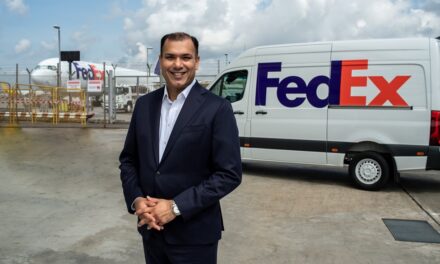
Where winners are fast rather than large
Few industries are more exposed to the forces of globalisation than logistics. As supply chains are stretched across oceans and continents, manufacturers and retailers are increasingly looking for logistics partners with international capabilities.
This pressure to go global helps explain the wave of consolidation that has swept through the industry over the past two years, as logistics companies have raced to expand around the world. By far the biggest deal was Deutsche Post's GBP3.7bn takeover of Exel, the UK-based logistics group, in 2005. Others included the USD1.1bn merger of Deutsche Bahn, the German rail operator, and Bax Global, the logistics arm of US-based Brink's. Another was the EUR490m acquisition of Paris-based ACR Logistics by Kuhne & Nagel of Switzerland.
John Allan, chief executive of DHL Logistics, the logistics division of Deutsche Post, says consolidation is likely to continue. He points out that the world's top 10 freight forwarding companies command less than 40 per cent of the global market.
"Markets are still fairly fragmented," he says. "We find ourselves up against good local competition everywhere in the world. But customers are putting pressure on national players to expand so the forces behind consolidation remain strong." While Mr Allan believes more mergers are inevitable, he says DHL's acquisition spree has probably come to an end. "We've now built the scale and size we want in every major market worldwide," he says. "We will continue to do smaller bolt-on acquisitions. But our priority now is organic growth. We're not going to be huge consolidators."
Deutsche Post's takeover of Exel, one of the world's largest supply chain management companies, accelerated its transformation from a German mail and express delivery group into a global freight and logistics giant. Mr Allan says the integration, which brought together 160,000 people in dozens of countries, is more than 75 per cent complete. Some observers predicted a clash of German and British cultures as Exel was absorbed. But Mr Allan insists the two "have meshed seriously well".
"We've ended up with the top 1,000 managers split almost 50/50 between DHL and Exel," he says. "This was not a British company merging with a German company. Both are active all over the world, with a very diverse, ethnically mixed group of managers. That has made it easier to bring people together."
Mr Allan says DHL is already reaping the rewards of the increased scale and capabilities provided by Exel. Last year, DHL won a 10-year, USD1.6bn contract to manage logistics for the UK's National Health Service – a deal that Mr Allan believes is the largest in the history of the logistics industry.
DHL is not the only express delivery group expanding into other supply chain services. UPS, the world's largest parcel courier, has invested more than USD2bn in about 30 acquisitions over recent years – most of them involving freight and logistics businesses.
But other groups are less convinced that synergies exist between small package networks and broader supply chain services.
FedEx, UPS's biggest US rival, has a large road freight operation and is keen to expand its ocean freight-forwarding capabilities.
But the group has steered clear of low-margin logistics services such as operating warehouses. "We have no interest in being late into a losing game," says Tom Schmitt, chief executive of FedEx Supply Chain Solutions. "We would rather play games we know we can win."
The most decisive rejection of diversification has come from TNT of the Netherlands, which sold its logistics and freight forwarding operations last year to refocus on mail and express delivery.
The Dutch group sold its logistics business to Apollo Management, a private equity group, and its freight-forwarding unit to Geodis, a French logistics company.
David Abney, chief operating officer of UPS, says TNT's broader ambitions failed because it lacked the scale and worldwide presence of UPS. But he insists there is growing demand from multinational companies for integrated transport and logistics solutions that can handle everything from the smallest package to the heaviest freight.
"We do see the synergies and the connectivity," says Mr Abney. "I've heard some competitors say they've never lost a single package due to not having logistics capabilities. I can't answer for them but I can say we've gained a lot of packages through also offering freight, warehousing and other services."
Gary Hanifan, a logistics industry expert at Accenture, the consulting group, says the greatest potential for further consolidation is in emerging markets, particularly China and India, where international transport and logistics companies are seeking greater presence.
One estimate puts the number of separate logistics companies in China at 18,000, while the China Logistics Club says no single competitor has more than 2 per cent of the market. Mike Eskew, chief executive of UPS, says his group's focus has shifted from acquisitions to integration.
"We feel pretty good that we have the capabilities we need to be able to take our customers anywhere they want to go," he says, while leaving open the possibility of more bolt-on deals.
"Where we need extra capabilities faster than we can grow ourselves, we will have to speed things up through acquisitions," he says. But size alone is not enough to guarantee success for logistics companies. "It's a fast-changing world we live in," says Mr Eskew. "The winners are going to be the fast not the large."












